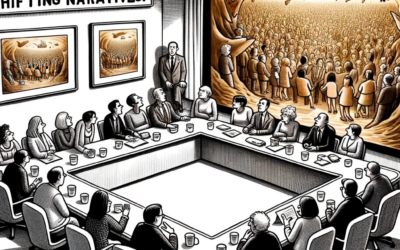How do you react to conflict?
Asking Questions
An alternative to resisting is asking questions about the other’s viewpoint. In working with clients — especially new leaders — I have found asking questions is a sorely undervalued technique. Many individuals believe asking questions is equivalent to losing power, looking like a fool, or admitting defeat. They may believe that it will simply waste precious time. It is easy to understand why these beliefs exist. For years, command and control leadership dictated that a subordinate should be told, not asked. “Be the boss everyone loves to hate!” In recent years, command and control has lost favor – primarily because it doesn’t work. The new philosophy of leadership is “Ask, don’t tell.” Just think about asking, “What is conflict about?”
Always remember that asking does not mean changing your position. When you ask a question to understand another’s viewpoint, you have much more to gain than to lose. Your opinion is yours, and no one can make you change it. This might seem obvious, but consider how quickly disagreements about ideas can snowball into personal attacks. When two individuals have their heels dug in, refusing to consider each other’s viewpoints, very little can be accomplished.
As much as people seem different on the outside, their ideas can differ even more. Understanding another’s position requires curiosity, patience, acceptance, and listening skills. Exceptional leaders have mastered these qualities and are excellent at identifying conflict and use these skills to resolve it. They easily suspend their positions long enough to understand and consider the viewpoints of others. If you are working toward leadership in your organization, I challenge you to implement this technique. I strongly believe the “Ask, don’t tell” mentality will not only enhance your leadership, but transform your life and your relationships.
Again, asking is much easier said than done. It takes practice. When faced with discomfort, it is natural to argue or tell, rather than ask. I frequently have to remind myself that, by defending my position, I learn nothing. By asking, a potential exists that I will discover new ideas. These ideas may then result in a better outcome. Do not allow your ego to tell you a better outcome is impossible. Ask, don’t tell!



